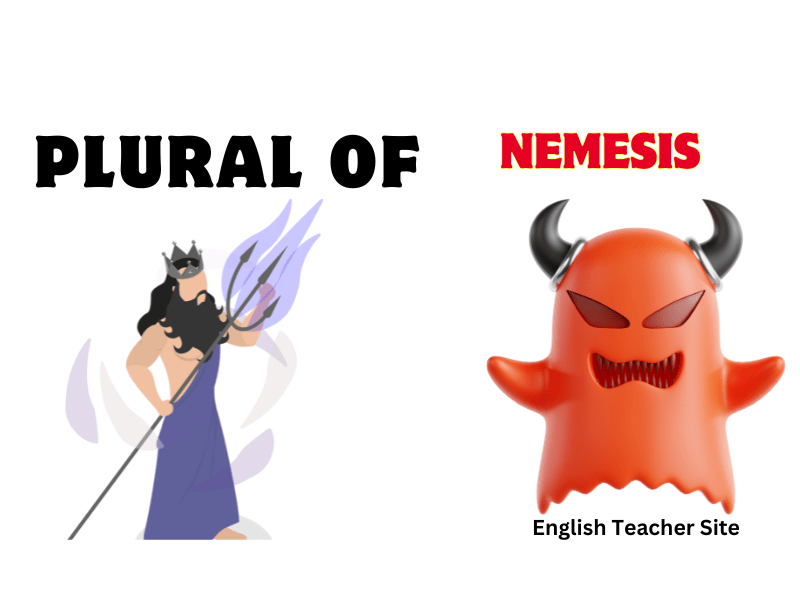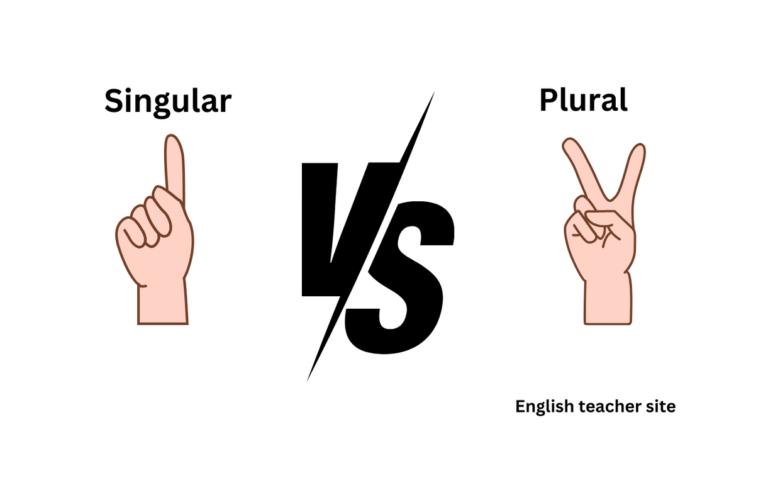What’s the Plural of Nemesis: Understanding English Nouns

- The word “nemesis” originates from Greek mythology and is used to represent a formidable adversary.
- “Nemesis” becomes “nemeses” in the plural form, following a unique pattern due to its Greek etymology.
- Correct usage of “nemesis” and “nemeses” is crucial for clear communication, particularly in narratives.
The plural of the word “nemesis” is “nemeses.” Unlike regular nouns that simply take an “s” or “es” suffix to become plural, “nemesis” follows a pattern similar to other Greek-derived words that end in “-sis.” The transition from singular to plural sees the “-is” ending replaced by “-es,” transforming “nemesis” into “nemeses.” Recognizing and using the correct form of the word can significantly affect the clarity of a message, especially when referring to multiple rivals or challenges within a context.
What’s the Plural of “Nemesis”?
When transforming nemesis to its plural form, the correct word is nemeses.
| Singular | Plural |
|---|---|
| Nemesis | Nemeses |
Students often misinterpret this transition, leading to common mistakes. Here is a correct use of both singular and plural forms in sentences:
- Singular: The superhero faced his nemesis in a battle for the city.
- Plural: The superheroes joined forces to fight against their nemeses.
To grasp the difference between singular and plural usage, consider these points:
- Nemesis:
- Refers to a single adversary.
- Example: “Each player considered the other his nemesis during the championship.”
- Nemeses:
- Refers to multiple adversaries.
- Example: “The team had to overcome several nemeses to win the title.”
The shift from nemesis to nemeses follows a pattern seen in other Greek-derived nouns, like thesis (theses) and crisis (crises). Knowing the correct plural forms of such words enhances precision in communication.
Is “Nemesis” Plural or Singular?
The term nemesis has a singular form that refers to a singular entity known as an adversary or an unbeatable opponent. It originates from Greek mythology, where Nemesis was the goddess of retribution. When discussing more than one adversary or opponent of this kind, the plural form comes into play, which is nemeses.
| Singular | Plural |
|---|---|
| nemesis | nemeses |
In sentences, these forms might appear as follows:
- Singular: “The superhero finally confronted his nemesis.”
- Plural: “The superheroes prepared to battle their nemeses.”
- The word nemesis is singular.
- The word nemeses is plural.
- The transition from singular to plural involves changing the -is to -es.
Defining the Word “Nemesis”
The term nemesis has its origins in Ancient Greece, where it referred to the goddess of retribution. Over time, its meaning evolved, stretching to encompass a broader concept. In contemporary English, nemesis can signify:
- A source of harm or ruin
- An archrival or formidable opponent
- A force that a person cannot seem to overcome
Characteristics of nemesis in the singular:
| Attribute | Description |
|---|---|
| Word Origin | Greek, via Latin |
| Meaning in Greek | Goddess of retributive justice |
| Uses | One that inflicts retribution or vengeance |
| Pronunciation | /ˈnɛməsɪs/ |
Characteristics of nemeses in the plural:
| Attribute | Description |
|---|---|
| Plural Form | Nemeses |
| Pronunciation | /ˈnɛməˌsiːz/ |
| Usage | Refers to multiple adversaries or opponents |
The pluralization of the word involves replacing the ‘-is’ ending with an ‘-es’, which is a standard rule in English for words that end with ‘-is’.
A few examples of the word in use include:
- After several attempts, she finally overcame her nemeses.
- The superheroes assembled to fight against their collective nemeses.
Words That End in -sis
Below is a table with a selection of words that follow this rule:
| Singular | Plural |
|---|---|
| crisis | crises |
| thesis | theses |
| oasis | oases |
| basis | bases |
These nouns share the characteristic transformation from “-sis” to “-ses” in their plural forms, highlighting a pattern that diverges from the more common “-s” or “-es” pluralization rule.
Additionally, some words in this category reference biological or medical terms, as shown in the subsequent table:
| Singular | Plural |
|---|---|
| diagnosis | diagnoses |
| prognosis | prognoses |
| hypothesis | hypotheses |
| metamorphosis | metamorphoses |
Examples of “Nemesis” Used in Context
Single Adversary:
- In literature, a protagonist often faces a formidable nemesis.
- Superheroes usually have a nemesis who challenges them throughout various story arcs.
Multiple Rivals:
- Politicians sometimes find themselves up against several nemeses during their careers.
- In competitive sports, teams may consider other top teams as their nemeses.
Here are two tables demonstrating the singular and plural forms of “nemesis” in different sentences to compare their use:
Table 1: Singular Form ‘Nemesis’
| Subject | Sentence Example |
|---|---|
| Sherlock Holmes | His nemesis, Dr. Moriarty, was a criminal mastermind. |
| Greek mythology | Nemesis, the goddess of retribution, balanced the scales. |
Table 2: Plural Form ‘Nemeses’
| Subject | Sentence Example |
|---|---|
| Comic book heroes | The Avengers face their nemeses in an epic showdown. |
| Environmental issues | Climate change and pollution are seen as global nemeses. |
These examples serve to show how “nemesis” can be stylized to suit the scenario, whether referring to a single entity or multiple adversaries. The usage of this term enriches the language, allowing for expressive and nuanced descriptions of characters, opponents, and challenges.
Examples of “Nemeses” in Context
- In literature, characters frequently confront their nemeses, which are not just enemies but significant adversaries who often mirror their own qualities. For instance, Professor Moriarty is often cited as the nemesis to Sherlock Holmes, presenting a villain equally intelligent and cunning as the protagonist detective. Therefore, Holmes’s nemeses include not just Moriarty but any figures presenting commensurate challenges.
- In Greek mythology, characters often faced divine nemeses, which were embodiments of retribution against excessive pride or hubris. These nemeses represented inevitable downfall, serving as cautionary symbols within mythological narratives.
Usage in Different Contexts:
| Context | Sentence Using “Nemesis” | Sentence Using “Nemeses” |
|---|---|---|
| Literary | The hero prepared to face his nemesis in the final battle. | The team of heroes braced themselves against their nemeses. |
| Mythology | The goddess Nemesis was relentless in pursuing the arrogant king. | Gods and goddesses can become nemeses for mortals who defy the divine order. |
Common Misunderstanding:
- The word “nemeses” is sometimes mistakenly thought to have alternative forms, but as confirmed by grammar authorities, it remains the only correct pluralization of “nemesis.”
Synonyms of “Nemesis”
Primary Synonyms:
- Adversary – An opponent in a conflict or contest.
- Antagonist – One who opposes another, often in a story or play context.
- Rival – A competitor striving for the same objective or for superiority in the same field.
Secondary Synonyms:
- Opponent – Someone who competes against or fights another in a contest, game, or argument.
- Foe – A person with a feeling of enmity, hostility, or opposition.
- Competitor – A person or entity that is in the same industry or field and is in a contest with another.
Synonyms Emphasizing Punishment:
- Avenger: One who takes or seeks revenge.
- Chastiser: A person who punishes or severely criticizes.
- Retaliator: One who returns like for like, especially evil for evil.
In literature and general usage, these terms might have slight variations in connotations, but they all generally refer to an entity that represents a significant challenge or obstacle to another. The emphasis varies from competitive scenarios to moral undertones of justice or revenge.
Table 1: Synonyms with Similar Meanings
| Synonym | Context |
|---|---|
| Adversary | General opposition |
| Antagonist | Often used in literary contexts |
| Rival | Emphasizes competition |
Table 2: Synonyms with Punitive Connotations
| Synonym | Implications |
|---|---|
| Avenger | Retribution, specifically with personal ties |
| Chastiser | Moral or disciplinary correction |
| Retaliator | Reactionary, responding to a prior act |
Sources
My name is Khamis Maiouf. I am the creator of the English Teacher Site, dedicated to providing valuable resources and insights for students around the world. With a passion for education and a commitment to helping students enhance their skills, I aim to make English teaching more effective and enjoyable for both educators and students.






